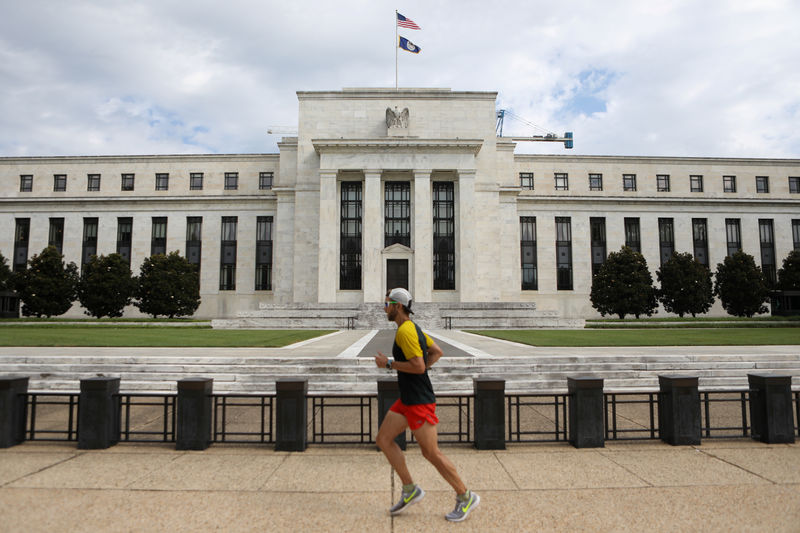(Bloomberg) -- The Federal Reserve is shifting its focus from writing and revising rules aimed at limiting risk in the banking system to a concentration on how lenders interpret the restrictions, the agency’s supervision chief said Friday.
Having finished the bulk of its work on major rules, the Fed can now devote more attention to behind-the-scenes interactions between bankers and their government overseers, Vice Chairman Randal Quarles said at a meeting of industry lawyers in Washington. He said the central bank will be more transparent about its supervisory work, sharing guidance documents with Congress and seeking public comment on them as it does with new rules.
“Supervisors promote good risk management and thus help banks preemptively avert excessive risk-taking that would be costly and inefficient to correct after the fact,” Quarles said. “Where banks fall materially out of compliance with a regulatory framework or act in a manner that poses a threat to their safety and soundness, supervisors can act rapidly to address the failures.”
Financial-industry regulators appointed by President Donald Trump have overhauled restrictions put in place after the 2008 credit crisis, and they’ve blunted the sting of some strictures that Wall Street hated most. The Fed last year completed some of those items and finished a major project to tailor regulations to banks based on their size, complexity and business models.
Quarles said the new emphasis on supervision and the proposed incremental changes are meant to “increase transparency, accountability and fairness” without jeopardizing the strength of the financial system.
In another potential change, he said the Fed could also clarify how banks are added to list of complex institutions overseen by the Large Institution Supervision Coordinating Committee. That’s meaningful because those dozen lenders including JPMorgan Chase (NYSE:JPM) & Co., Bank of America Corp (NYSE:BAC)., Deutsche Bank AG (DE:DBKGn) and Credit Suisse (SIX:CSGN) Group AG are compared with their peers when evaluated by supervisors. Quarles said he wants to move the four foreign banks -- Deutsche Bank, Credit Suisse, UBS Group AG and Barclays (LON:BARC) Bank Plc -- to a lower category.
“This change in supervisory portfolio would have no effect on the regulatory capital or liquidity requirements that currently apply,” Quarles said Friday at a meeting of the American Bar Association’s banking law group. The firms have shrunk their U.S. footprints, he said, and this move would align with other recent changes in their regulatory requirements.
He also said he favors codifying the Fed’s assurances that it won’t treat guidance -- such as the 2013 directives on leveraged lending -- as enforceable rules.
The vice chairman said the Fed intends to be clearer with the banks about what it wants and why, opening more two-way communication with the industry. His agency has earned a reputation for opacity, rarely revealing its evaluation methods or sharing specifics about its expectations, but Quarles’ tenure has been marked by a relaxation of the secrecy around the stress tests introduced after the 2008 meltdown to ensure the banks can weather another crisis.
Quarles didn’t address the status of some pending rules. The Fed is still working with other agencies on a new proposal to govern Volcker Rule limits on banks’ investments, and it’s also completing work on significant measures dealing with bank liquidity and leverage.
